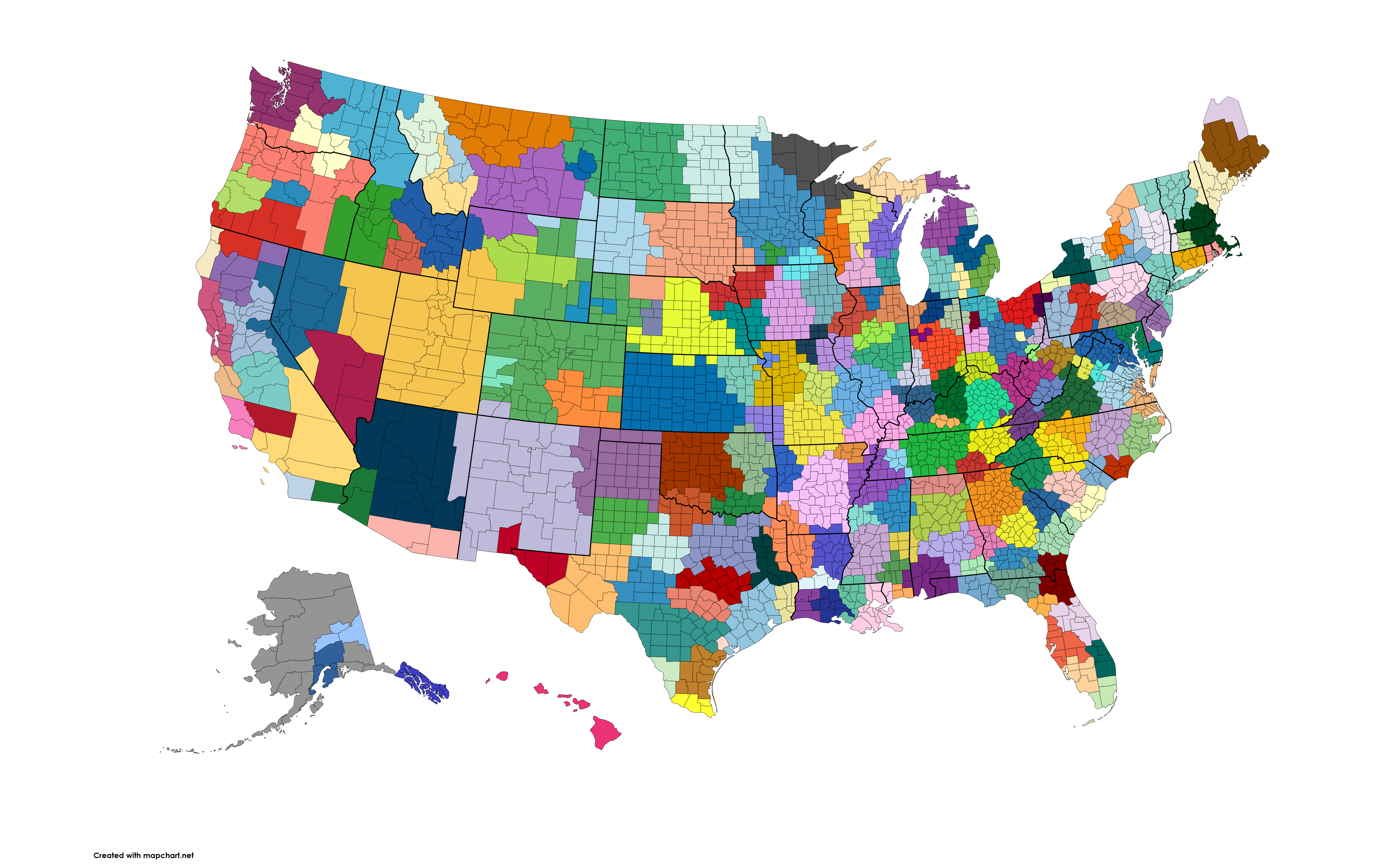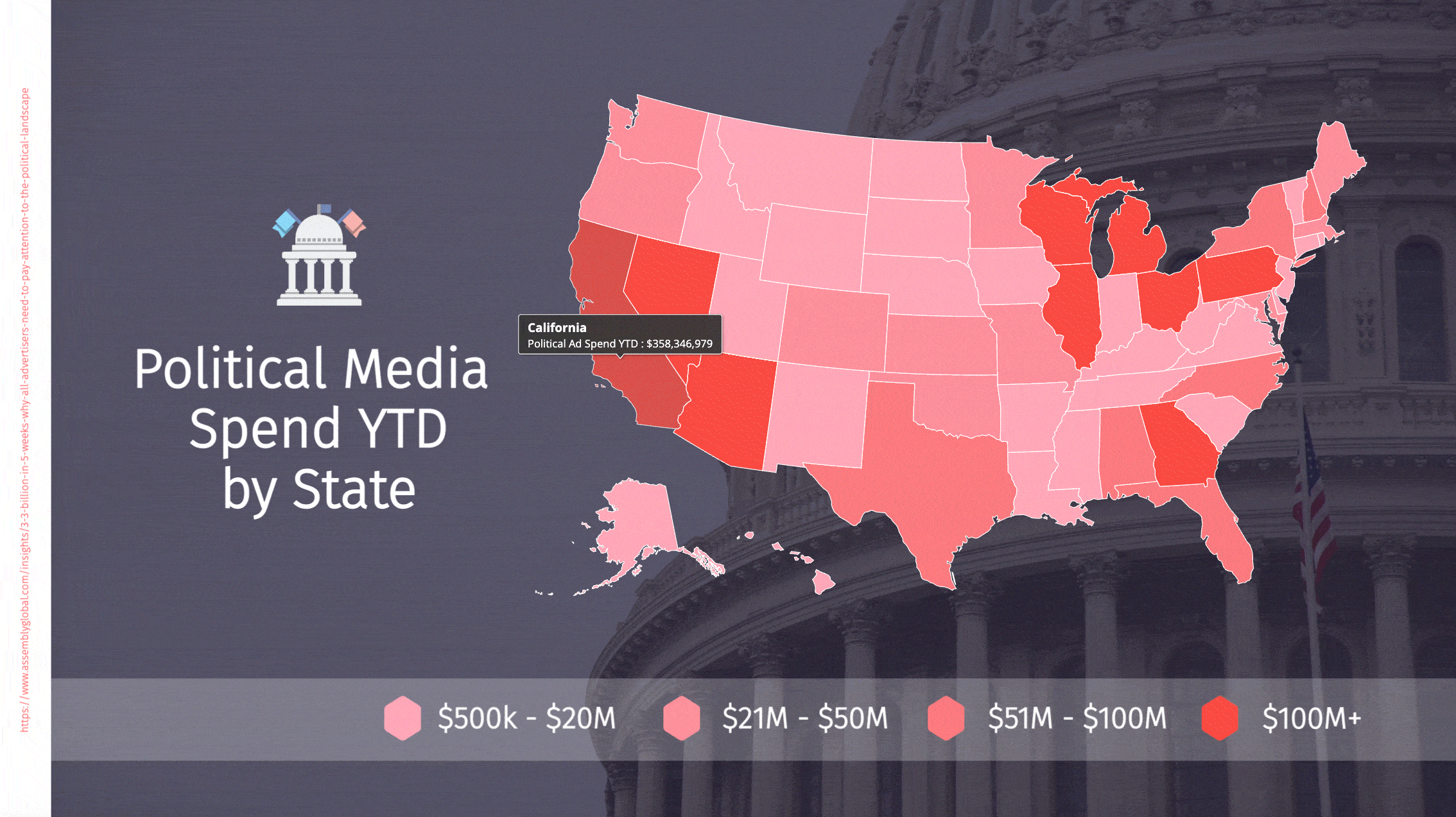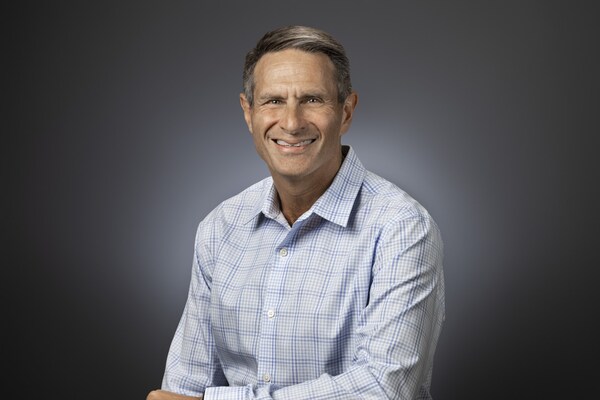Marketing Frontiers
Heating Up: The Political Ads Marketplace: Introducing Assembly's Market Intensity Index
By
Assembly Political Media Practice
CONTACT
hello@stagwellglobal.com
SIGN UP FOR OUR INSIGHTS BLASTS
Via the Assembly Political Dispatcher. Sign up to receive weekly insights here.
Knowing dollars in market is crucial, but what about other important factors? How can we really tell just how fiery a market is, and how much competition advertisers are up against? That’s where AMII comes in.
The below map shows the scale of Assenbly’s AMII values system – tracking 200+ DMAs to uncover key local market insights and implications for determining which DMAs to place spots and how best to distribute them among markets

What’s our AMII Methodology?
The AMII is a 1-10 scale of how crowded we project that a given market will be during the 2022 election cycle. How do we classify “crowded”? We look at multiple factors, including the size of the DMA, the number of races, how stiff the competition is among the races in that DMA, expected outside or issue group involvement, spillover into competitive districts/states, and geographic location of the market within an already competitive state. So, think of 10 as the most crowded, hottest DMA, and those closer to 1 as cooler markets.
Check out our political spending heat map, layered with AMII values for 15 DMAs, ranging from this election season’s hottest markets to the biggest city metros.

WHAT’S THE CHATTER?
Connections & Conversations
What are the most talked about issues in the news? Below is a visualization that shows the top headlines over the past two weeks from the biggest political news handles such as POLITICO, MSNBC, The Hill, and more. Headlines were analyzed and grouped to show connection points between topics taking place across America.
|
What This Means
Judging by the size of the conversation (9.2%), women’s rights is still a big part of the landscape as we begin to see the impact of new regulations in a post-Roe world. Brands need to recognize that many consumers have heightened anxiety about healthcare, so an empathetic tone will go a long way.
Both sides are working to reduce inflation (9.1%) in different ways, from student debt relief and energy conservation to lowering shipping and trucking regulations. Brands can enter the conversation by being transparent around their own supply chain and the ways they’re working towards easing inflation.
In the weeks before the search, Trump (11%) was fading from the news cycle. The investigation now puts him back in the spotlight as new information comes to light. As the divisive conversation continues, brands will need to understand how to navigate these topics while finding middle ground in order to resonate with a diverse audience set.
RATINGS ROUNDUP
National News Trends
What We Know
Broadcast news has seen a decline in national ratings year-over-year. Of the big 3 cable news networks, CNN and MSNBC are seeing double-digit declines, while Fox News has shown a 10% increase in its ratings. Some of this erosion can be attributed to a shift in news viewership to streaming platforms.
What This Means
In this polarizing political climate, viewership trends tend to follow public interest, whether positive or negative. This midterm election year, people are turning to cable news, not only for self-education about issues, but also to help reinforce ideals they already hold about the direction of the country.
NEWS OF THE WEEK
NPR: Maxwell Frost, one of the first Gen Z candidates for Congress, has won his primary
What We Know
Frost’s campaign is based on key progressive issues, including Medicare for All, a Green New Deal, student debt cancellation, and an end to gun violence. Mr. Frost’s win illustrates the political appeal of a young candidate who can tap into the urgency of the political moment.
What This Means
Maxwell Frost’s win brings light to an important theme: interest in politics is increasing among younger audiences. Technology has given Gen Z a louder voice than ever and a platform for their activism. And the industry has taken note – midterm political spending has shifted into streaming services and emerging social platforms like TikTok in order to reach this audience. It will be more important than ever to monitor the conversation amongst younger audiences and to keep them front of mind this election season.
Related
Articles
In the News, Marketing Frontiers, Press Releases, Stagwell Marketing Cloud
Apr 02, 2025
The European Commission Expands its Partnership with UNICEPTA by PRophet to Include Media Analysis

Artificial Intelligence, In the News, Marketing Frontiers, Press Releases
Apr 02, 2025
Stagwell (STGW) Appoints John Kahan as Inaugural Chief AI Officer

In the News, Investments & Financials, Press Releases
Apr 02, 2025
Stagwell (STGW) Will Host 2025 Virtual Investor Day and Announce $5 Billion Revenue Target by End of FY29





